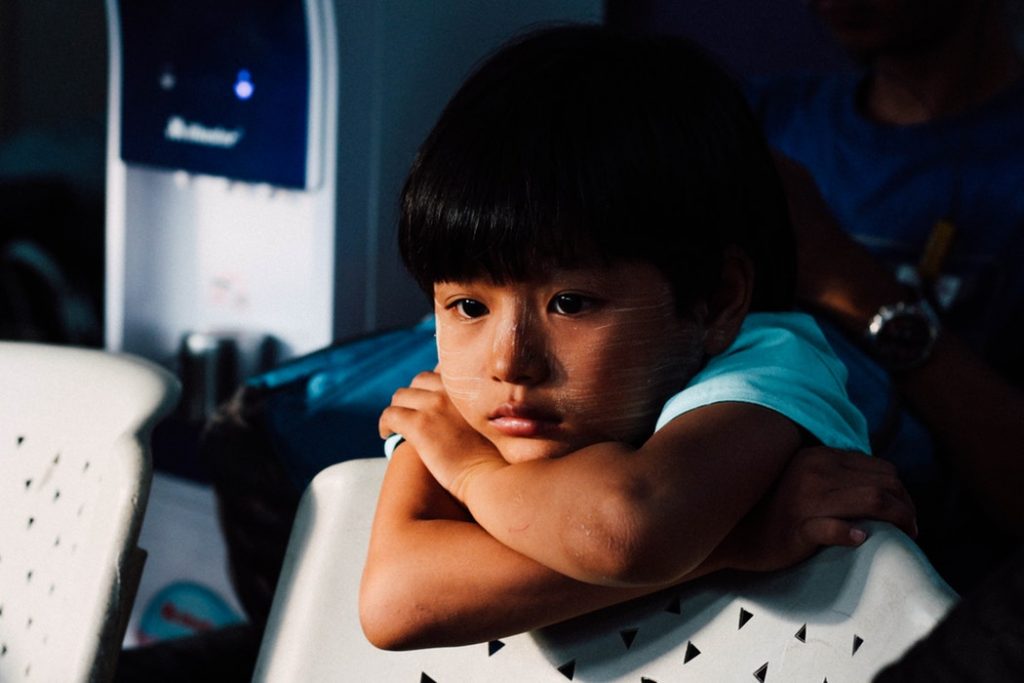5 Signs Of A Toxic Parent

A toxic parent is a parent whose emotional abuse negatively impacts their child, in any way, shape or form. Oftentimes, these parents take their own unresolved traumas and project them onto the child.
The child can be negatively affected in a numerous amount of ways – they may have stunted emotional or psychological growth, they may fail to form healthy relationships, or they may be unable to perform well socially.
The parents usually normalize the abuse – they pretend that all parents act as they do, preventing the child from realising that the parents are toxic. To combat this, the child must be aware and informed of the symptoms of toxic parenting.
Without further ado, here are five common signs of a toxic parent.
1. They are overly critical.
The parent criticizes their child relentlessly, about anything and everything. Whatever the child does is never enough, and the parent makes sure they know. The child is made to feel as though they are worthless and irrelevant, as the parent slowly but surely chips away at the child’s self esteem.
For example, the parent may make negative comments about the child’s clothing, friends or habits. They may ridicule their child and bully them. Their constant putting down of everything the child does makes the victim feel like they have no purpose or use in this world.
2. They always put their own feelings first.
The parent is extremely uncaring of how the child feels. If the parent feels anything less than perfect they will ramble about their own problems to the child. If the child offers a solution, the parent will shut them down with a scoff, effectively silencing the child. Even if the child doesn’t want to listen, they will guilt and manipulate the child into listening anyway.
The child is forced to listen to things they don’t want to hear, and will often feel burdened. How do you act when you’re venting to your friends? You’re probably very respectful – you don’t victimise yourself, and you probably don’t ramble for hours. However, in the case of toxic parents, their ‘venting’ is very harmful – they victimise themselves, refuse to take any accountability and talk for long periods of time. They are unwilling to take in account of the fact that child needs time to themself as well. This leads to the child feeling as though their own needs do not matter, which is a very harmful belief – in adulthood, this trauma may present itself as a chronic inability to practice self-love.
3. They do not allow the child to express their emotions.
The parent may take away the child’s right to express themselves, be it emotionally or physically. While the parent is always allowed to feel however they want, the child is forced to repress their own emotions. This sets both a very unhealthy precedent and an extremely hypocritical outlook on life.
For example, if a child is crying, they may be told that they have no right to be sad. The parent may say something like, “You have food and a roof over your head, how could you possibly feel sad?”
If a child is proud of a personal achievement, they may be put down and told to stop being so full of themselves. Or, if a child is righteously angry, they will be told they are too young to understand anything. This is a form of dehumanization.
4. They make the child choose sides in an argument.
Whenever an argument erupts between two caregivers, they may force the child to pick between who is wrong and who is right. Doing this can cause long lasting emotional damage to a child, as it creates a great deal of confusion for the child about their emotional safety in the family. They may feel responsible for the parent’s emotions, placing others needs above their own.
The child may feel pressure to take one parent’s side over the other – and they feel horribly guilty when the other parent is upset. This leads to a lose-lose situation, causing the child to feel depressed and isolated. As an adult, a person who frequently faced this situation in their childhood may feel guilty if they ever attend to their own needs, creating a toxic environment for themselves.
5. The parent makes the child feel like the parent.
They force the child to take on the duties of the household – be it the chores, the cooking of the food, or the looking after of younger siblings. These responsibilities are often too much to handle for the child, because of their age, or because of the child’s many other responsibilities. This particular type of toxicity is called ‘parentifying.’ Have you heard of this term before?
The parent makes the child feel like they have to look after the parent emotionally as well – they must always offer a listening ear and do exactly as the parents says. This creates a great deal of stress for the child, and may leave them extremely emotionally damaged. As the child grows up, they may become a chronic people pleaser – too caught up in helping others to meet their own emotional needs.
There are a number of steps children of toxic parents can take to aid their recovery – for example, they can set healthy, firm boundaries, talk to a therapist or counselor, and practice plenty of self-love, self-care, and self-soothing.
Do you recognise these behaviours in your parents? Do you have any other examples of parents being toxic? Share them in the comments! As always, thank you for reading, and have an amazing day!
– AS, <3
Disclaimer: This article is in no way trying to reinforce a victim/persecutor complex, it is simply trying to shed light on why some adults are unable to cope with childhood events. Learning about the things that hurt us often aid in recovery – which is the sole aim of this article.



I’ve felt almost all of these emotions, I didn’t know they meant actual abuse since I was raised to think that was normal and that’s how parents discipline their children. It’s not both of my parents…it’s just one. She doesn’t think my feelings are relevant to her and that technically I’m just a child…I don’t understand what she goes through but I do. I feel that I’m not up to her standards and I blame her for my low self-esteem whereas she’s clueless about where it comes from. I don’t know what to do whenever I have breakdowns and cry..